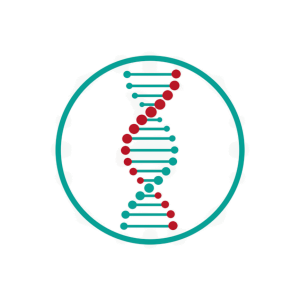Mainz Biomed Announces Submission for FDA Breakthrough Device Designation for its Next Generation CRC Screening Test
Rhea-AI Summary
Mainz Biomed has submitted an application to the FDA for Breakthrough Device Designation for its Next Generation CRC Screening Test, which incorporates novel mRNA biomarkers. The submission follows promising results from the ColoFuture and eAArly Detect studies, showing 97% sensitivity for colorectal cancer and 88% for advanced adenomas, with 93% specificity. The test uses a combination of Fecal Immunochemical Test (FIT) and proprietary mRNA biomarkers, supported by AI and machine learning algorithms. If approved, the FDA designation could accelerate the product's market release, providing more effective cancer detection and potentially improving global CRC screening practices.
Positive
- Mainz Biomed submitted an application for FDA Breakthrough Device Designation for its Next Generation CRC Screening Test.
- The test demonstrated 97% sensitivity for colorectal cancer and 88% sensitivity for advanced adenomas.
- The specific configuration includes novel mRNA biomarkers and AI algorithms.
- The Breakthrough Device Designation could significantly accelerate product approval.
Negative
- None.
News Market Reaction 1 Alert
On the day this news was published, MYNZ gained 0.65%, reflecting a mild positive market reaction.
Data tracked by StockTitan Argus on the day of publication.
On the basis of its positive clinical studies Mainz Biomed has now defined the final configuration including its novel mRNA biomarkers of the Next Generation Test to be used in pivotal registration study ReconAAsense
A recent clinical analysis of this new configuration demonstrates sensitivity for colorectal cancer of
BERKELEY, Calif. and MAINZ, Germany, July 09, 2024 (GLOBE NEWSWIRE) -- Mainz Biomed N.V. (NASDAQ: MYNZ), a molecular genetics diagnostic company specializing in the early detection of cancer, announced that it has submitted its application to the U.S. Food and Drug Administration (FDA) requesting Breakthrough Device Designation for its non-invasive Next Generation colorectal cancer (CRC) product including the Company’s novel portfolio of mRNA biomarkers. Subject to the FDA’s review, a Breakthrough Device Designation could significantly accelerate approval.
The regulatory submission follows consistently excellent read-outs of its clinical studies ColoFuture and eAArly Detect, as well as data from a pooled study including both the European and the US arm that were presented at ASCO 2024. On the basis of these studies Mainz Biomed has now defined the final configuration of its Next Generation Test integrating the Fecal Immunochemical Test (FIT) with proprietary mRNA biomarkers, complemented by an advanced AI and machine learning algorithm that the Company plans to use in its Next Generation product, and the FDA premarket approval study.
The configuration of the Next Generation Test was tested in a clinical setting. The analysis involved 295 clinical subjects from 21 specialized gastroenterology centers across the United States and highlighted the remarkable efficacy of Mainz Biomed's multimodal screening test. This combination enables precise differentiation among colorectal cancer (CRC), advanced adenomas (AA), non-advanced adenomas, and samples with no pathological findings.
Key Findings
- Sensitivity for Colorectal Cancer:
97% (95% confidence interval: 83.3-99.9) - Sensitivity for Advanced Precancerous Lesions:
88% (95% confidence interval: 77.2-94.5) - Specificity:
93% (95% confidence interval: 88.4-98.3)
Guido Baechler, Chief Executive Officer at Mainz Biomed, commented, “On the back of our extremely positive clinical results in all our recent studies, finalizing the test which will be used in the pivotal ReconAAsense study and approval process has been an elementary milestone for our Company. Our Next Generation Test has shown a significant improvement in sensitivity for advanced adenomas and high-grade dysplasias, combined with high sensitivity and specificity for CRC. Moreover, we believe that our unique decentralized model of working with third party laboratory partners provides better access to underserved communities and our simple collection process will increase the adherence to testing. These benefits support our mission to transform colorectal cancer screening practices and reduce global cancer mortality rates.”
The FDA’s Breakthrough Devices Designation is a program for certain medical devices and device-led combination products that provide for more effective treatment or diagnosis of life-threatening or irreversibly debilitating diseases or conditions. It is intended to allow patients and health care providers timely access to medical devices by speeding up development, assessment, and review for premarket approval, 510(k) clearance, and De Novo marketing authorizations. Breakthrough Devices must meet the FDA’s rigorous standards for device safety and effectiveness in order to be authorized for marketing.
Please follow us to stay up to date:
LinkedIn
X (Previously Twitter)
Facebook
About Colorectal Cancer
Colorectal cancer (CRC) is the third most common cancer globally, with more than 1.9 million new cases reported in 2020, according to World Cancer Research Fund International. The US Preventive Services Task Force recommends that screening with stool DNA tests such as ColoAlert® should be conducted once every three years starting at age 45. Each year in the US, 16.6 million colonoscopies are performed. However, roughly one-third of US residents aged 50-75 have never been screened for colon cancer. This gap in screening represents a
About Mainz Biomed N.V.
Mainz Biomed develops market-ready molecular genetic diagnostic solutions for life-threatening conditions. The Company’s flagship product is ColoAlert®, an accurate, non-invasive and easy-to-use, early-detection diagnostic test for colorectal cancer based on real-time Polymerase Chain Reaction-based (PCR) multiplex detection of molecular-genetic biomarkers in stool samples. ColoAlert® is currently marketed across Europe. The Company is planning to run a pivotal FDA clinical study for US regulatory approval. Mainz Biomed’s product candidate portfolio also includes PancAlert, an early-stage pancreatic cancer screening test. To learn more, visit mainzbiomed.com.
For media inquiries
MC Services AG
Anne Hennecke/Caroline Bergmann
+49 211 529252 20
mainzbiomed@mc-services.eu
For investor inquiries, please contact info@mainzbiomed.com
Forward-Looking Statements
Certain statements made in this press release are “forward-looking statements” within the meaning of the “safe harbor” provisions of the Private Securities Litigation Reform Act of 1995. Forward-looking statements may be identified by the use of words such as “anticipate”, “believe”, “expect”, “estimate”, “plan”, “outlook”, and “project” and other similar expressions that predict or indicate future events or trends or that are not statements of historical matters. These forward-looking statements reflect the current analysis of existing information and are subject to various risks and uncertainties. As a result, caution must be exercised in relying on forward-looking statements. Due to known and unknown risks, actual results may differ materially from the Company’s expectations or projections. The following factors, among others, could cause actual results to differ materially from those described in these forward-looking statements: (i) the failure to meet projected development and related targets; (ii) changes in applicable laws or regulations; (iii) the effect of the COVID-19 pandemic on the Company and its current or intended markets; and (iv) other risks and uncertainties described herein, as well as those risks and uncertainties discussed from time to time in other reports and other public filings with the Securities and Exchange Commission (the “SEC”) by the Company. Additional information concerning these and other factors that may impact the Company’s expectations and projections can be found in its initial filings with the SEC, including its annual report on Form 20-F filed on April 9, 2024. The Company’s SEC filings are available publicly on the SEC’s website at www.sec.gov. Any forward-looking statement made by us in this press release is based only on information currently available to Mainz Biomed and speaks only as of the date on which it is made. Mainz Biomed undertakes no obligation to publicly update any forward-looking statement, whether written or oral, that may be made from time to time, whether as a result of new information, future developments or otherwise, except as required by law.








